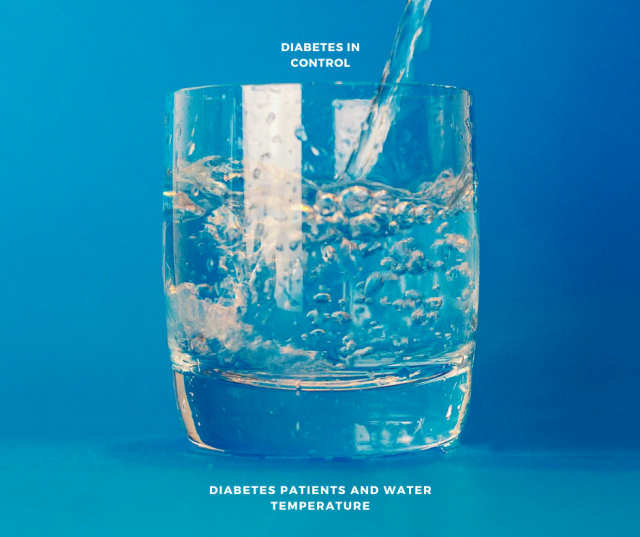
Many people fast for various reasons—from religious observances to viral health trends circulating on social media. While some practices may seem harmless or even healthy, they can be particularly risky for individuals living with diabetes. For these patients, everything from blood sugar fluctuations to hydration strategies must be closely monitored. A lesser-known but increasingly discussed topic in diabetes management is the effect of water temperature on the body. Exploring the link between diabetes patients and water temperature could offer clinicians more nuanced guidance for everyday care decisions.
Table of Contents
- The Role of Hydration in Diabetes Management
- How Water Temperature Affects the Body
- Warm Water: Benefits and Considerations
- Cold Water: Risks and Therapeutic Use
- Conclusion
- FAQs
The Role of Hydration in Diabetes Management
Staying hydrated is essential for everyone, but for people with diabetes, water intake plays a more critical role in regulating blood glucose levels. Dehydration can cause blood sugar to rise, leading to complications like diabetic ketoacidosis in type 1 diabetes or severe hyperglycemia in type 2. Proper hydration supports kidney function, helps flush out excess glucose through urine, and aids in cellular health.
Moreover, during fasting periods—whether intermittent or prolonged—hydration becomes even more vital. The body naturally shifts energy sources during fasting, which can trigger metabolic stress. For diabetes patients, this is a sensitive period requiring careful fluid and electrolyte management.
Water temperature is rarely discussed in this context, yet emerging studies and anecdotal evidence suggest it may influence metabolism, digestion, and even glucose response. Therefore, clinicians may want to incorporate guidance on optimal water temperature when advising patients.
How Water Temperature Affects the Body
The temperature of the water a person consumes can trigger different physiological responses. Cold water generally causes vasoconstriction, potentially slowing digestion and lowering core body temperature. On the other hand, warm water promotes vasodilation, possibly improving circulation and aiding digestive processes.
For diabetes patients, these effects are not just theoretical. Vasoconstriction may exacerbate neuropathic symptoms or reduce peripheral blood flow, already common complications in diabetic individuals. Conversely, warm water might help improve these symptoms by enhancing circulation, especially in extremities.
Additionally, water temperature could impact how quickly the body absorbs glucose or responds to insulin. While research is still developing in this area, clinicians may benefit from observing these trends in patient responses. Linking water temperature with symptom management could refine personalized care strategies.
Warm Water: Benefits and Considerations
Warm or lukewarm water is often promoted in holistic health communities for its soothing effects on the stomach and its potential to enhance metabolism. For diabetes patients, this may offer tangible benefits. Drinking warm water first thing in the morning may stimulate the digestive tract and help with early-morning glucose regulation.
Warm water is also less shocking to the system, which may be beneficial for patients experiencing gastroparesis—a condition more common in people with diabetes. By easing digestion, warm water can support smoother nutrient absorption and glucose balance.
However, there are considerations to keep in mind. Extremely hot water can cause mucosal damage in the mouth and esophagus, which could be especially problematic for patients with existing complications. A safe temperature should be advised, ideally between 120 and 130 degrees Fahrenheit.
Encouraging the use of warm water before meals could also help reduce appetite and support weight management. This might be particularly useful in patients managing type 2 diabetes, where weight control is often a key therapeutic goal.
Cold Water: Risks and Therapeutic Use
Cold water may be refreshing, but it also brings potential concerns for individuals managing diabetes. Drinking cold water can slow digestion and reduce the rate at which blood glucose levels stabilize after meals. Additionally, cold-induced vasoconstriction could impair circulation in diabetic patients already dealing with compromised blood flow.
Still, there are scenarios where cold water might offer benefits. For example, during heatwaves or after exercise, cold water can help regulate body temperature quickly. In such cases, hydration takes priority, and the temperature may become secondary.
Furthermore, cold exposure has gained popularity for its metabolic effects, including increased brown fat activation and insulin sensitivity. However, such methods should be used cautiously and under clinical supervision when applied to diabetes patients.
Ultimately, the key takeaway is moderation. While cold water is not inherently harmful, its use should be context-specific. Clinicians can advise patients on when it is safe versus when warm or room-temperature water would be more appropriate.
Conclusion
For diabetes patients, small lifestyle adjustments often yield significant health outcomes. The connection between diabetes patients and water temperature might not yet be part of standardized care, but it deserves more attention. Whether warm or cold, the temperature of water can influence digestion, circulation, and possibly even glucose control. As the healthcare landscape becomes increasingly personalized, this detail could make a meaningful difference in patient outcomes.
Clinicians are encouraged to consider hydration strategies—including water temperature—when advising patients, especially those fasting or dealing with complications like neuropathy or gastroparesis. For additional guidance and patient resources, platforms like Healing Well and Diabetes in Control offer community insights and professional updates.
FAQs
1. Should diabetes patients avoid cold water? Not necessarily, but cold water should be used with caution, especially if the patient has circulation issues or is experiencing gastroparesis.
2. Is warm water better for glucose control? Warm water may support digestion and circulation, which could indirectly help with glucose regulation. However, more clinical research is needed.
3. Can water temperature affect insulin absorption? While not directly, water temperature might influence digestion and circulation, which can impact how the body responds to insulin.
4. Does fasting increase dehydration risk in diabetes patients? Yes. During fasting, fluid and electrolyte balance can shift, so proper hydration is essential.
5. Where can patients find more information? Reliable sources include Health Healing Well and Diabetes in Control, which provide community forums and expert insights.
This content is not medical advice. For any health issues, always consult a healthcare professional. In an emergency, call 911 or your local emergency services.